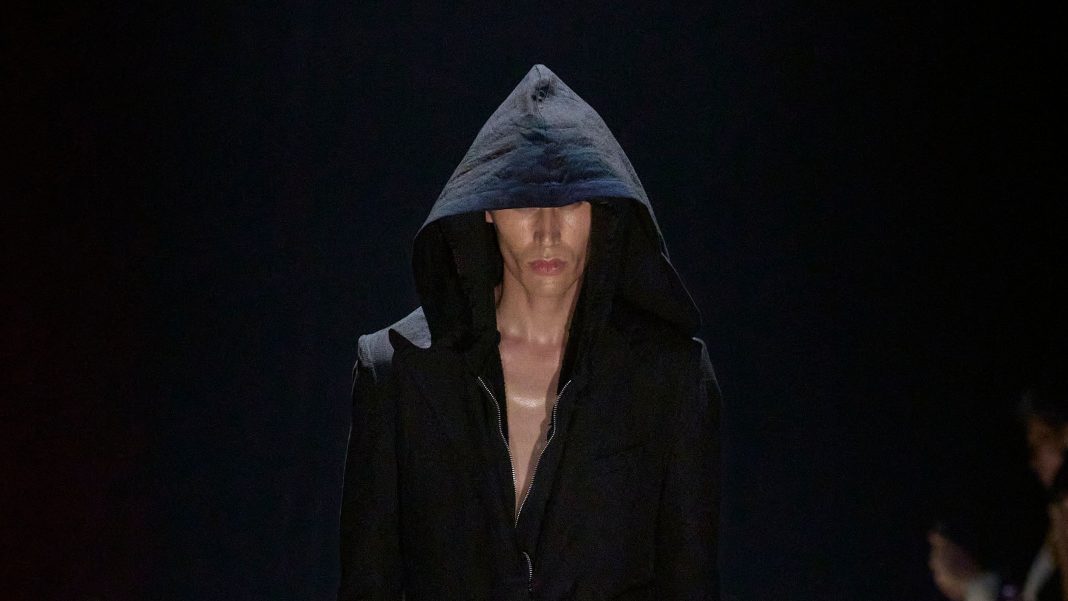Everybody knows how creative Tokyo street style can be (peek at the latest season here on Vogue Runway for proof). The kids here wear the most outlandish and boundary-pushing outfits you’ve ever seen. But what happens to those kids when they grow up? Some of them, like Kenta Orimi, go into fashion. The 36-year-old, who was born in Hiroshima and later moved to Tokyo, spent his teenage years collecting vintage clothes and getting street-snapped on the pedestrian catwalks of Harajuku. Opening his own store, The Elephant, Orimi would remake vintage items for his customers, and taught himself how to design by taking apart jeans and reassembling them. He eventually had enough success to transform The Elephant into a well-regarded select shop that now has two outposts: one in Osaka, one in Tokyo. Then, in 2020 during the pandemic, he founded his own brand, Orimi. Which just about brings us up to date.
On Saturday night, in what would be the closing show of this season’s Tokyo Fashion Week, he held his first on-schedule show for Orimi, with a selection of morbidly elegant, neo-gothic tailoring that showed off his skills as both a designer and a buyer. Everything was curiously twisted: hoodies were made from linen and had plunging necklines, tailored trousers had deeply dropped crotches or asymmetrical fastenings, while suits had fabric-covered buttons or were cropped with huge power shoulders.
The speakers thrummed with dark techno remixed with church organ music. Whether Nosferatu or Edward Cullen (some models’ skin sparkled silver with glitter), surely there was a subtle vampire reference going on here. “Vampires?!” laughed Orimi backstage afterwards. “I wasn’t conscious of doing that, but my collections do tend to be mostly monochrome and I always have a gothic element in my work.” He credits the moodiness to Sonic Summer, the Tokyo music festival that he lived nearby growing up. “I was exposed to a lot of rock music from high school,” he said.
Bloodsucking or not, the collection had plenty of bite, and the strange but convincing tailored looks made this a solid debut for Orimi. Sure, it drew on his past in Harajuku, but it was resolutely forward-looking and ambitious. The audience was also full of Orimi-clad boys for whom his work clearly resonates. “For me, Harajuku represents my roots and where I come from,” he said. “With my brand, I want to take that essence and elevate it to an international level, sharing the things I feel and experience, not just within Japan, but with the world.”
#Orimi #Tokyo #Spring #Collection


